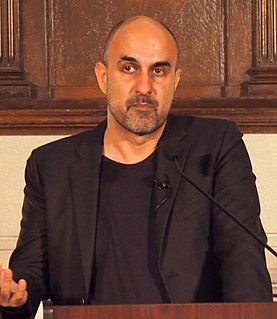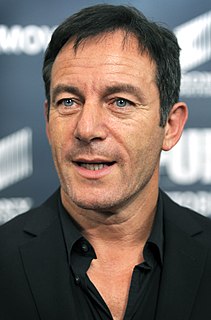A Quote by Hari Kunzru
Some books I've kept because the binding is beautiful - I'm unlikely ever to read my grandmother's copy of 'The Life of Lord Nelson.' I'm addicted to secondhand bookshops.
Related Quotes
Books bend space and time. One reason the owners of those aforesaid little rambling, poky secondhand bookshops always seem slightly unearthly is that many of them really are, having strayed into this world after taking a wrong turning in their own bookshops in worlds where it is considered commendable business practice to wear carpet slippers all the time and open your shop only when you feel like it.
My college roommate gave me her copy of 'Lord of the Rings,' and I read that probably five or six times - not because I think it's the greatest thing ever written, though some people certainly think it is - but the world he creates is so vivid. So real that he designed its own languages, history and mythology.
We buy a copy of 'Gravity's Rainbow,' say, and we carry our copy home. We open it; we fall into it. And it is here that the word 'copy' fails. Because what I experience when I read 'Gravity's Rainbow,' or 'Beloved,' or 'The Moviegoer,' is not at all a 'copy' of what you experience when you read the same novel.
It's actually as simple as this. New authors, building their customer base, need physical bookshops. Physical bookshops are lovely tactile, friendly, expert, welcoming places. Physical books, which can only be seen and handled in physical bookshops, are lovely, tactile things. Destroy those bookshops, and the very commercial and cultural base to the book industry is destroyed. Once and for all. Like Humpty Dumpty, it can never be put together again.
[D]on't ever apologize to an author for buying something in paperback, or taking it out from a library (that's what they're there for. Use your library). Don't apologize to this author for buying books second hand, or getting them from bookcrossing or borrowing a friend's copy. What's important to me is that people read the books and enjoy them, and that, at some point in there, the book was bought by someone. And that people who like things, tell other people. The most important thing is that people read.
I went off and read the books after the audition and I read all four books in one sitting - you know - didn't wash, didn't eat, drove around with them on the steering wheel like a lunatic. I suddenly understood why my friends, who I'd thought where slightly backward, had been so addicted to these children's books. They're like crack.
Read not to contradict and confute; nor to believe and take for granted; nor to find talk and discourse; but to weigh and consider. Some books are to be tasted, others to be swallowed, and some few to be chewed and digested: that is, some books are to be read only in parts, others to be read, but not curiously, and some few to be read wholly, and with diligence and attention.





































